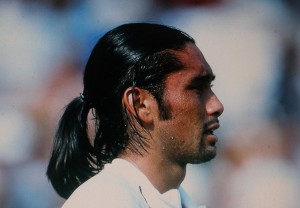
By Scoop Malinowski
Some renowned tennis rivals actually develop close relations after their epic duels on the court. Martina Navratilova and Chris Evert are dear friends today. As are John McEnroe and Bjorn Borg. Marat Safin and Thomas Johansson spent ten days together helping train Maria Sakkari last year in Monte Carlo, even hitting balls with each other on the court, in a sort of low key rematch of their 2002 Australian Open final. But some tennis rivalries like Sampras vs Agassi, McEnroe vs Connors and Lendl, Graf vs Seles never find warmth from the cold wars. Neither have Marcelo Rios and Petr Korda.
Rios and Korda had a classic rivalry in the ATP in the 1990s, they battled eight times with each winning four. The pair of stylish lefty strikers are best known for their 1998 Australian Open final showdown, won resoundingly by the Czech, 62 62 62. They competed just one more time two months later in Indian Wells, won by Rios 62 64. Rios defeated Korda in their initial first clash in Miami in 1995, 63 76.
Last week, Petr Korda was at the Sarasota Open ATP Challenger coaching his 18-year-old son Sebastian, a wildcard entry who made it to the quarterfinals. Young Korda, a tall right hander with a double-handed backhand, unlike his dad, won the 2018 Australian Open junior title and is currently ranked 411 in the ATP.
I have interviewed Petr Korda many times over the years. We are friendly. The subject of Marcelo has never been one of this favorite topics so with a slight hint of a guarded reluctance Korda agreed to share his memories of the famous Melbourne final against his nemesis…
“It was my second major. ’92 was my first one,” recalled the still fit 51 year old. Actually, Korda played in the 1990 Roland Garros doubles final (with Goran Ivanisevic) and he won the 1996 Australian Open doubles title (with Stefan Edberg). I remember I was nervous. Because I played the semi against Kucera (four sets) on Thursday, I had two and a half days to think about the match. As soon as I made the walk from the locker room to the arena, I started hitting the ball. And I was still nervous but I won my first game. I remember I really relaxed and played some good tennis that day.”
The Australian final was the seventh confrontation Korda and Rios shared, their previous duel was in Germany the year before. “I beat him in Stuttgart (63 64). I know he beat me after Australia in Indian Wells.” When asked why he believes he was able to defeat Rios in the Melbourne final, he answered, “I played better. I had more experience than him. He probably paid the price to be first time in the final. I cannot speak on his behalf. I believe I dominated from every corner that day.”
Though the scoreline of 62 62 62 suggests a masterpiece performance, Korda disagreed. “I don’t think I played so well. I had some better matches. I played good enough to win. A few games I had some struggles. I remember the first game of the match I think I was break point down. I had a very tough game when it was two sets to love up and 4-2, we played a long game. I cannot say it was my best match. It was important to win important points and mostly to win the last one.”
Korda contemplates the times he played better than his Australian Open conquest. “I played well in Czech Championship under 18 – I won twelve games in a row after I was one down. You don’t want to pick the one that was the best. Every one meant something always to me. Even winning or losing. I had great battles in Grand Slams with (Michael) Stich and (Pete) Sampras. Over the years, I played 25 years of competitive tennis, it’s a lot of matches. It’s a lot of matches that were maybe better than Australian Open.”
Twenty one years later, as we sit under the tent, while waiting for his son Sebi to play, I ask Korda if he could reveal his strategy for Rios that afternoon? “No,” he replies with a smile. “The cook never reveals his recipe…Listen, I knew how he’s gonna play, how he’s gonna act on the court. I knew what I can expect. I think he knew what he can expect from me. I was just better prepared mentally, physically.”
I decide to push for more but gently, Was it almost a perfect performance by you? “Not perfect. Not perfect,” he replies. “Tennis is not the perfect. I played the way I needed to win. To raise the cup. And that’s how exactly I did. Simple.”
After the historic match, Rios and Korda would actually meet again hours later. “We went to dinner that night, with my wife (Regina) and friends. Very simple. It was in an Italian restaurant. Rios was there. He wanted to beat me in the shots.” A drinking contest? “Yeah, well he was trying [smiles]. It was also very quick and simple [smiles]. It was no contest for me. Even less contest than on the court [smiles].”
The extended celebration ensued and another personal triumph. “I did celebrate when I came back home to Czech, at home with my friends and the family. I wish I could have the big cup with me, I had the very small one. That was a time when you sit home, relax and enjoy. Because I won Doha (defeated Fabrice Santoro in final), two tournaments before Australia. I had something to celebrate. Plus my wife and I were expecting the second child (Nelly, now a successful professional golfer like first daughter Jessica). And we were going through the tests because we lost one previously. So that was more celebrating the achievement of the family and achieving winning the Grand Slam.”
In March 1998, Korda, then ranked ATP no. 2, played Rios again, for the eighth and final time, in Indian Wells quarterfinals. “I didn’t play well that particular week. I still was having hangover with the victory, as you see with a lot of guys when you win the first major, kind of slow down. So I just was outplayed. Just Rios that day was better. My thing is, I said Rios might be the first no. 1 player in the world at that time but he’s never going to win a slam. And probably I was right.”
Korda says this loss to Rios was not due to lack of motivation “but look, Sampras lost to Agassi, Agassi beat him. The matches are very level. So one day you win, one day you lose. You have to accept it. I lost. I shook his hand. Tournament was over. And I knew I was going to play the next one in Miami.”
Rios didn’t do anything special in the match until it was over. “He played his same game like always. Only he was trying to act with the scissor kick (imitating Korda’s signature celebration hop) afterwards, after he beat me. That kind of tells you who Marcelo Rios was. Lemon player. That’s why he was voted Lemon player by the media. He beat me, I shook his hand, I smiled, not much else I can do.” That loss cost Korda a chance to be world no. 1. Korda came close to achieve ATP world no. 1 but the loss to Tim Henman in Miami allowed Rios to attain the no. 1 ranking. Korda had three other matches to be no. 1 but he lost those.
In 1998 at Wimbledon, Korda would lose a lot more. Following his quarterfinal match against Tim Henman at the 1998 Wimbledon Championships, Korda tested positive for the banned steroid called ‘nandrolone,’ This was later publicly revealed in December 1998. Korda was stripped of the ranking points and prize money that he had won at 1998 Wimbledon, however he was not banned from the sport. The International Tennis Federation decided it had made an error by not banning Korda, and sought to appeal against its own decision not to ban Korda from tennis competition. London’s High Court ruled in late January 1999 that the ITF could not appeal against its own initial decision, but Korda was later banned from tennis for twelve months from September 1999 and stripped of the prize money and ranking points that he had won since July 1998. This suspension had minimal effect because Korda had retired at age 31 after failing to qualify for 1999 Wimbledon, after losing to journeyman Danny Sapsford in a qualifying match.
Then in March 2015, Rios requested an investigation into whether Korda committed a doping violation which possibly influenced the outcome of their 1998 Australian Open final match. Chilean tennis officials backed the request by Rios. “Chile Tennis Federation will support Marcelo because he’s the best player in Chile’s history,” stated Chile Tennis Federation spokesman Rodrigo Valdebenito to The Associated Press. The Federation will request a probe in the coming months. Rios hoped to accept the 1998 Australian Open title if it was proven that Korda violated doping rules but a reversal never happened and Korda is still the champion.
Korda did not appreciate this action by Rios and countered it by mentioning an infamous skeleton hidden inside the closet of Rios, regarding the time Rios pushed his ex-wife out of a moving automobile. Today Rios and Korda live less than ten miles apart from each other, Rios near downtown Sarasota and Korda in Bradenton, near the IMG training facility. They did nearly cross paths recently at IMG where Rios trained for his recent exhibition with Nico Lapentti and Korda helps train his son. “I saw him from the distance,” said Korda.
I make one more attempt to see if there is any hope for Rios and Korda to become friends some day, if they can bury the hatchets and find peace or even brotherhood. Petr, can you say one thing you like about Rios? “I know he could strike a ball. I mean, obviously everybody can see that. He was striking the ball nice,” he says with a faint, half smile.
It begins to rain softly. Petr’s son Sebi lost later in the day to Marcos Giron. The Kordas will drive home and then to the next ATP Challenger tournament in Tallahassee.
Could the winds of change and the seasons of nostalgia somehow bring these two tennis forces of nature together one day to become closer, friendlier, maybe even share a laugh, a smile or even a beer together?
One could never count out anything with the King of Unpredictable himself, Marcelo Rios. Could the mighty marvel who slayed Agassi and the world of tennis, who commanded the admiration of Roger Federer, who inspired generations of new Chilean tennis success, surprise us again by befriending a former nemesis who lives just miles down the road?
With Marcelo Rios, you just never know…
(This feature was published in Le Segunda, a major national daily newspaper in Chile.)
No tags

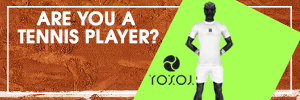

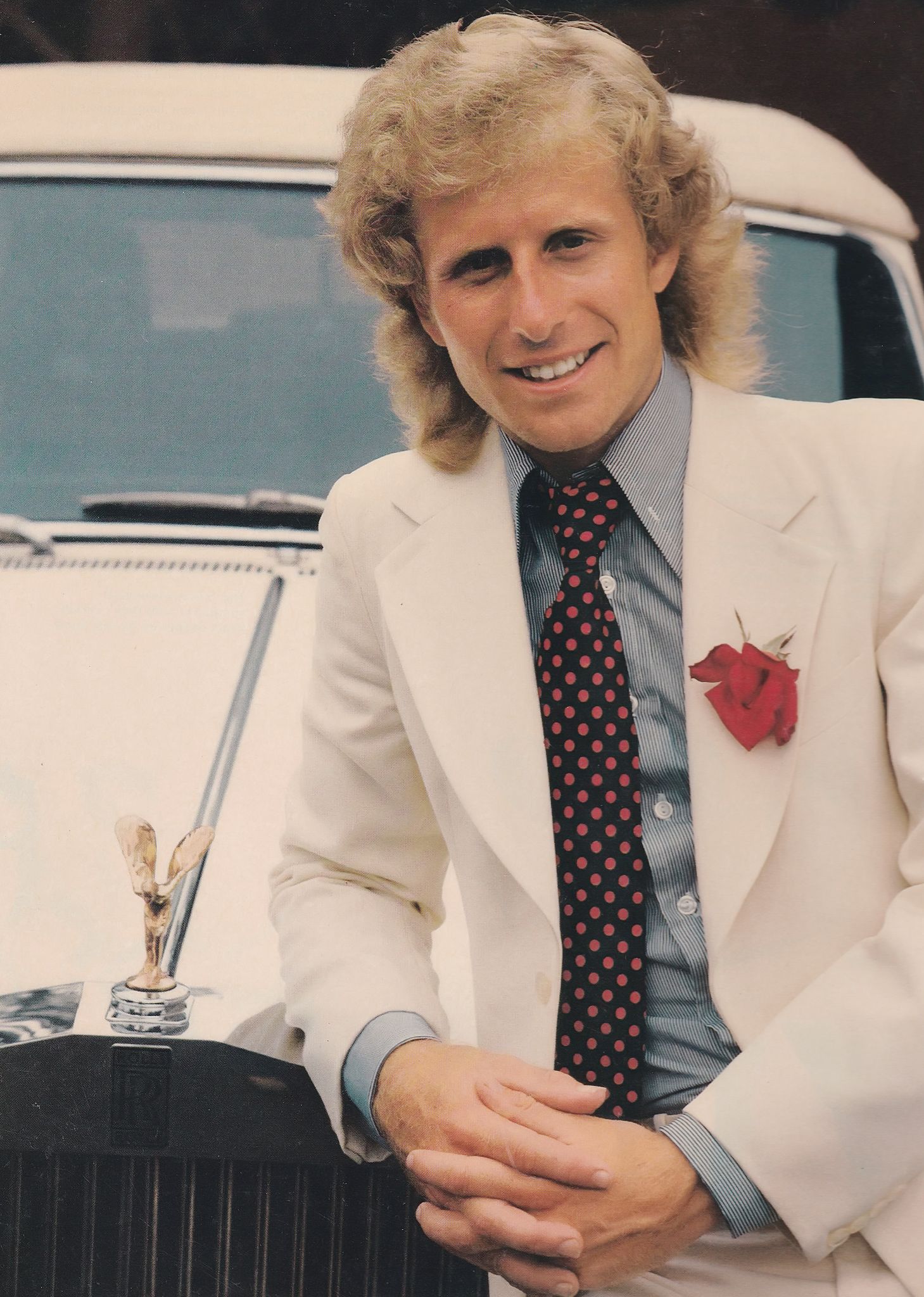
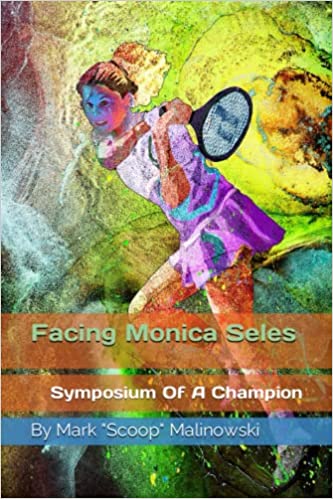
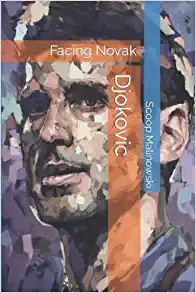
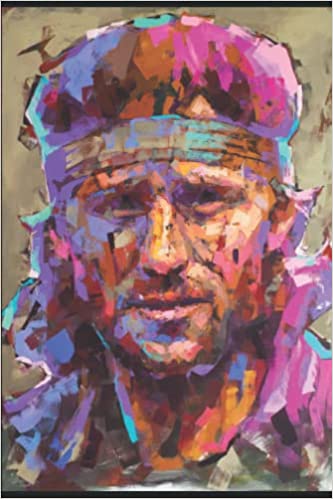
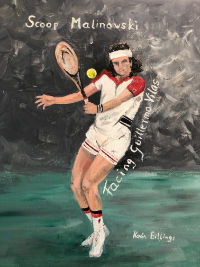
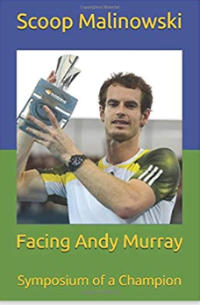
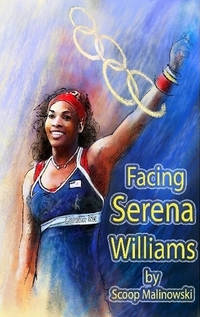
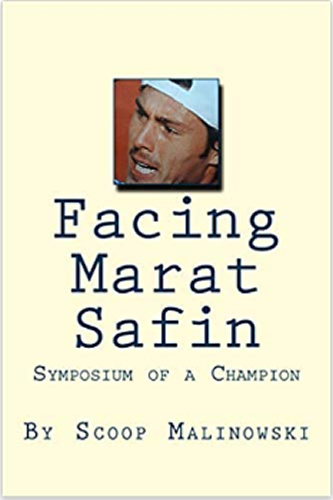
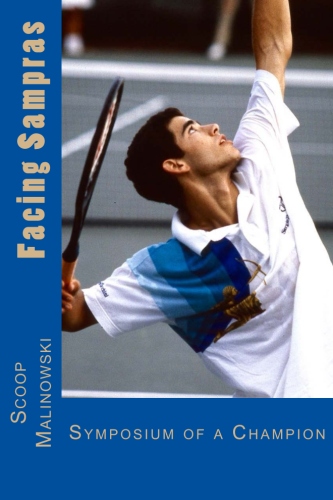
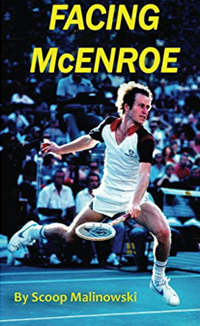
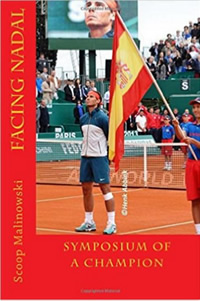
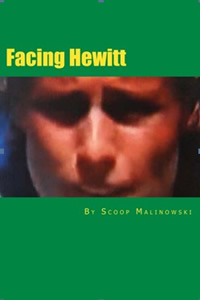
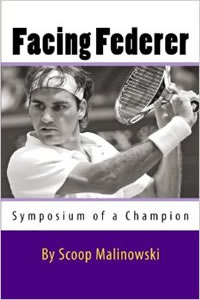
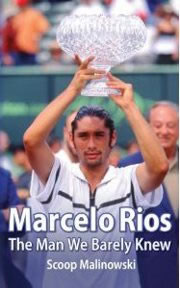

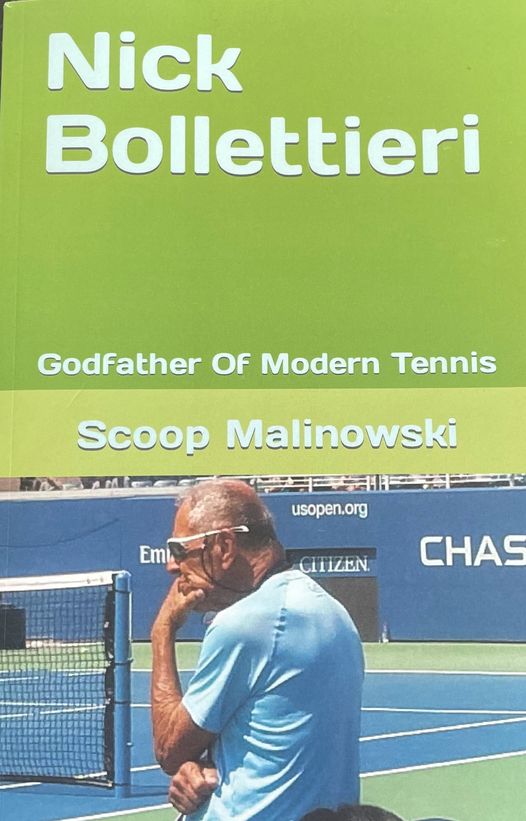

Frank Day · July 22, 2019 at 2:14 pm
Bravo Scoop. One of your best. Great background on characters with complexity in the heroics.
Scoop Malinowski · July 22, 2019 at 2:54 pm
Thanks Frank, happy you liked it. Not a mainstream story but two intriguing, semi-forgotten champions.